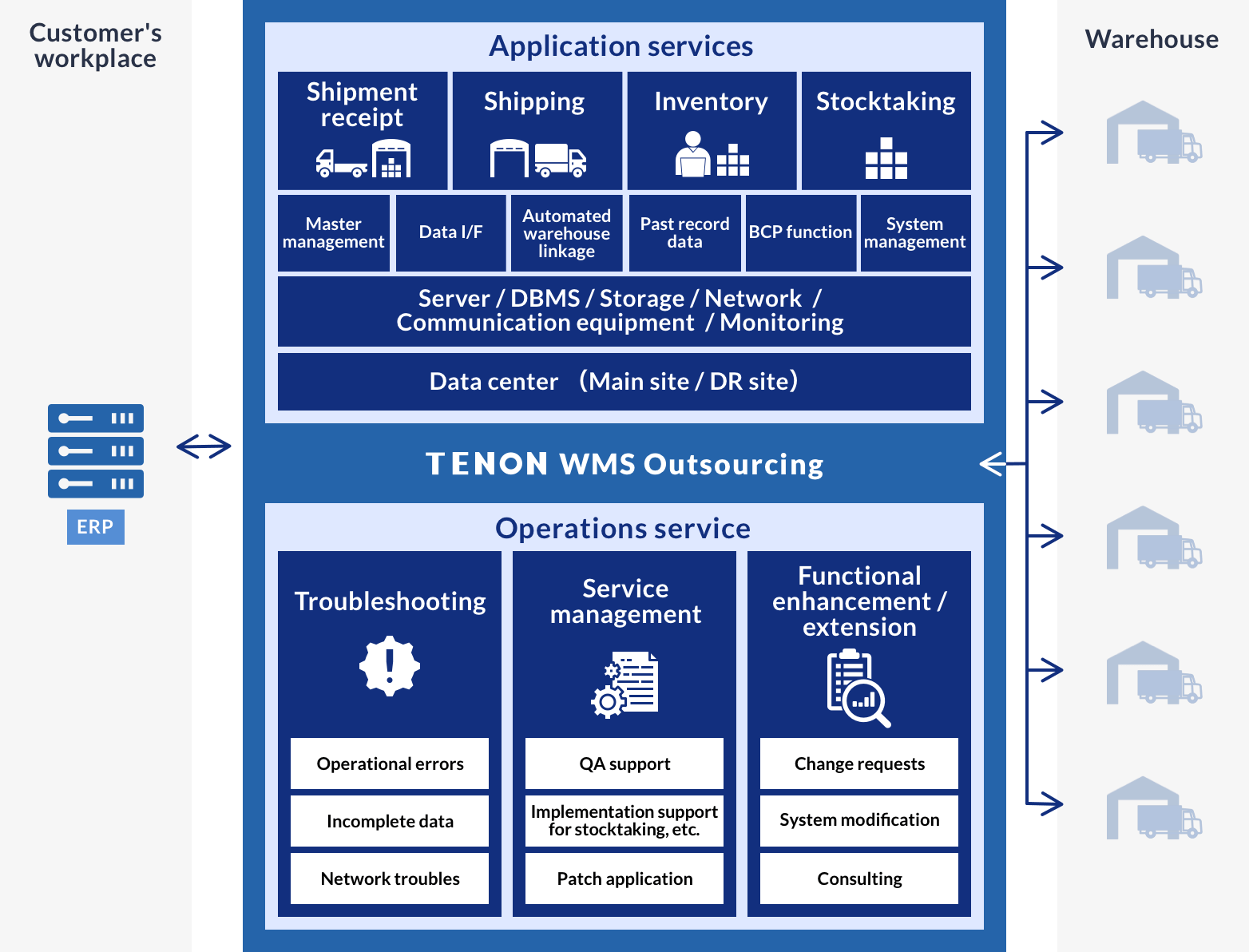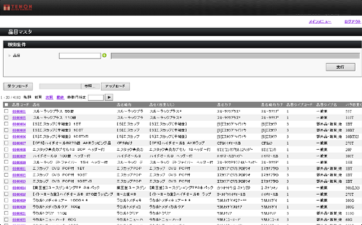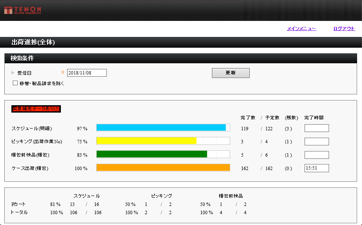WMS Outsourcing
- TENON’s commitment
- The issues customers face
- Key points in solving issues
- Overview of our service
- Uniqueness and advantages
TENON’s commitment
Tenon provides a warehouse management system (WMS) that features high compatibility with SAP and other enterprise business systems to enable centralized management of multiple warehouse sites in the form of a WMS full outsourcing service that integrates IT equipment and its operation.
The issues customers face
The systematization of in-warehouse logistics operations has been achieved in some cases through software integrated with warehouse facilities. The result has been that many companies face problems with their warehouse management systems, such as issues in linkage with enterprise business systems, disparate systems at different warehouses, complex management, and operations that are not integrated.
Key points in solving issues
Key points in solving the above issues and maximizing investment efficiency in terms of both IT assets and personnel are as follows.
- From a standpoint of IT facilities, integration of warehouse management systems (WMSs) scattered across multiple sites into a single system featuring high reliability, availability, and serviceability
- From the standpoint of IT operations, creation of a new hub organization and elimination of conditions in which the roles and communication flows of parties are complicated
Overview of our service
Our WMS outsourcing service consists of two parts: an application service that provides application functions for warehouse management work and IT facilities such as data centers, hardware, and networks; and an operations service that provides system operation.

Application services
The application services of our WMS outsourcing service provides application functions including automated warehouse linkage, performance management, BCP, and system management functions, in addition to the main business functions of receiving, shipping, inventory, stocktaking, and master management functions for these.


Operations service
In the operations service of our WMS outsourcing service, we support customers’ everyday warehouse management work and system operation through a variety of services including troubleshooting, service management, and system function improvement/extension, while also providing powerful support for expansion to new sites and improvement and extension of application functions.
Uniqueness and advantages
Our WMS outsourcing service contributes to efficiency, quality improvement, and cost reduction in customers’ warehousing work through the following unique points and advantages.
Improvement of efficiency of warehousing work
- Enables inspection of main warehousing work including shipping, receiving, inventory movements, and stocktaking using wireless handy terminals, contributing to improvement of task quality and capacity
- Supports varied methods of picking work including order/total, contributing to work efficiency
- Adaptable to not only flat warehouses but also varied warehouse layouts through data linkage with WCSs (warehouse control systems)
- Achieves real-time system linkage and integration with SAP ERP and other higher-level system business processes
Improvement of warehouse management system RAS (reliability, availability, serviceability)
- The production environment operational service adopts a high-availability system architecture able to automatically hand over service functions to an alternate system and continue processing in the event of system failure
- Able to provide disaster recovery (DR) to remote areas as a business continuity planning (BCP) measure
- Enables continuation of business through list picking in the event of failure occurring in areas outside of wireless range where handy terminals cannot be used, or in higher-level systems such as SAP ERP
- Supports audit trails at the level required for SAP ERP and other enterprise business systems, and is able to manage change history for users, items, modification dates, etc. in addition to system logs
Reduction of total cost of ownership (TCO) of warehouse management system
- No need for in-warehouse system tasks due to provision of application architecture capable of centrally managing multiple warehouses in the form of a hybrid cloud service
- Unified operations at all warehouses and reduction of testing, education, and other workloads in the introduction of new warehouses, through a centralized management architecture
- Centralization of system operation and resolution of system renewal issues at EOL (end of product sales, end of support) of disparate systems, through centralized management architecture

